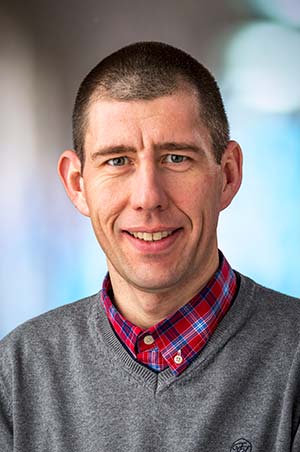Anthony Rongvaux, PhD
Associate Professor
Translational Science and Therapeutics Division, Fred Hutch
Dr. Anthony Rongvaux studies how the immune system recognizes and responds to abnormal cells, like infected cells and cancer cells. His specialty is the innate immune system, the first responder of the body's defenses. Dr. Rongvaux studies the cells, genes and molecules that power innate immune responses using powerful laboratory tools he helped create to faithfully model the human immune system in all of its diversity. These new experimental models allow the Rongvaux team to manipulate particular aspects of the immune response and study its activities in depth.
Education
Associate Research Scientist, Yale University; 2015
Postdoctoral Fellowship, Yale University; 2011
PhD, Molecular Biology; Free University of Brussels; 2006
BS, Molecular Biology, Free University of Brussels; Brussels, Belgium, 1999
Current Projects
Dr. Rongvaux’s ongoing research focuses on understanding what happens when the innate immune system gets it wrong, as when our immune system attacks our own cellular “power plants”; or when our immune system treacherously promotes disease.
In the first instance, he studies the immunogenic function of mitochondria, our powerhouses. Mitochondria originated from bacteria more than 1 billion years ago, and continue to live in synergy within our cells, producing the energy required for life. But because of their bacterial ancestry, mitochondria can be mistakenly recognized as foreign entities by our immune system. The Rongvaux lab studies the ‘tolerance’ mechanisms that can prevent such auto-immune responses against mitochondria, and the consequences on disease development in case this tolerance is broken.
In a second project, the Rongvaux lab studies the role of macrophages in the context of cancer. Macrophages are immune cells that protect us against diseases by eliminating pathogens, such as bacteria and viruses. But in the context of cancer, macrophages frequently turn against us, and promoting tumor progression metastasis, which is the main cause of cancer-related mortality. Understanding the precise molecular mechanisms by which these macrophages dysfunction may enable the future development of innovative immunotherapies.
"Fundamental research in immunology is the first step towards creating lifesaving advances."
— Dr. Anthony Rongvaux
